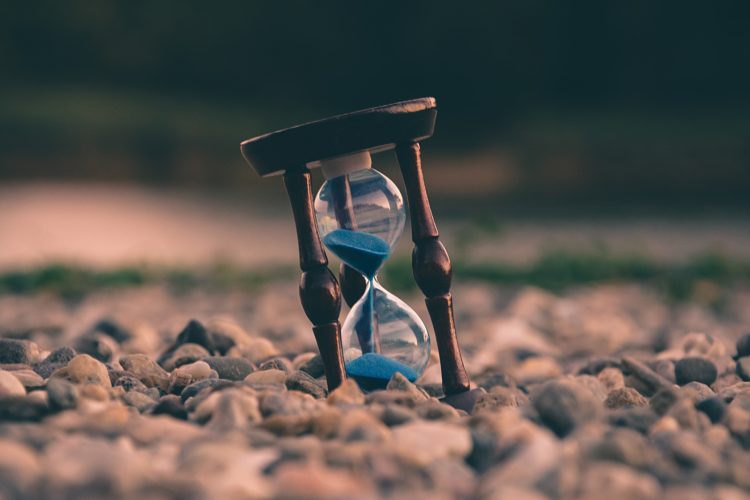
The Questions We Need to Be Asking About Female Porn Addiction
It never fails, when I share my story of being a woman with a past porn addiction, I get a lot of questions. If the group is co-ed or over 40, the number one question is almost always “Why?”
Keep in mind, it’s not typically a sympathetic and sincere “why.” It’s more along the lines of a disgusted, “Ugh! Why?” The way it is asked implies, “What is wrong with these women?” as if the one asking the question has forgotten I am one of those women.
At first I tried to answer the question and actually explain. But when someone is asking a “why” of disgust and disbelief, you can explain all you would like and you aren’t going to change the disgust and disbelief part.
Which made me realize, when it comes to female porn addiction, we’re asking the wrong questions.
Right now, we’re asking a lot of “who” and “why.” The problem with who and why is it provides us ways to look somewhere else.
When someone asks me, “Who does this?” (interpretted as: what type of women get into this?) they’re hoping I won’t list characteristics of any women they know. They’re wanting the profile, not so they can help spot women who are struggling, but so they can rest in some false comfort that the women they know are not struggling.
We don’t do this on purpose. It’s our nature, I think, to ask questions that “put our minds at ease.” Unfortunately, when it comes to female porn addiction, those are the wrong kinds of questions. There’s nothing about this that should put our minds at ease.
“Who” introduces complacency.
The truth is that struggle among women is just like struggle among men- there is no “type.” She could come from a loving Christian family or from the streets, homeschooled or private schooled, abused or never harmed a day in her life.
Age is perhaps the only distinguishing characteristic. I have found porn addiction is more common for a young girl than it is for her grandmother. In one event I can have a grandmother sitting mouth agape, in disbelief that women actually watch this stuff, while her 12 year old granddaughter shrugs me off saying, “What’s the big deal? Every girl watches this.”
We need to approach the problem with female porn addiction the same way we do with men. Assume it can be a potential issue until proven otherwise instead of assuming “there’s no way.”
Like “who” the question of “why” has many ways it’s not helpful.
“Why” introduces shame or guilt.
When I was trained for my time as a crisis pregnancy counselor, we were taught not to ask “why” questions. Why? Because asking a “why” question more often than not puts the person on the defensive.
Asking why almost always implies, “I would have done that differently, what were you thinking? Explain yourself!”
That’s true when flabbergasted pastors come up to me and ask, “Why do women do this?” I’ve learned to respond with “Why do men do this?” Because it exposes a mindset that somehow we’re ok with men doing this, but we have a major problem with women doing this.
When “why” comes from parents or leaders, it can be especially hurtful.
When a parent or leader asks “why” it is often interpreted as a “why did you do this to me?” It doesn’t communicate concern and care. It feels more like the cartoon character stranded in the middle of the desert looking to the sky screaming, “Why!?”
There’s a better way to have this conversation.
“How” introduces healing
Too often the questions we ask put the burden of the conversation on the addict. She has to have a good enough answer. She has to have a thorough explanation. She needs to satisfy disgusted curiosity or assuage misplaced guilt. That is not healthy or helpful.
Instead of asking “who” (because it’s everybody) and “why” (because this is different for every person), ask “how” questions.
How questions communicate an interest in a person’s story and encourage them to dive deeper.
They are far more insightful than any “why” question you can ask.
Instead of asking “why,” here are three “how” questions you should be asking.
How can we change the culture?
Female porn use, like male porn use, is influenced by culture not only in a larger social sense, but in a local sense. Church and family culture can create environments where this thrives. We need to stop trying to see if it’s really “that big of a deal.” It is, and our current culture isn’t helping. We need to stop analyzing and start acting.
How does this affect women?
Instead of asking “why do women do this?” Ask how it affects them. The effects of pornography on women are different men. Some of that has to do with the content itself; much of it has to do with the idea that this is a man’s issue.
Don’t just ask how pornography affects women. Ask how the way you talk about pornography could be affecting women.
Sometimes our mishandling of the topic of pornography can do more damage than the pornography itself.
How can I help?
Whether you’re a pastor, mom, friend, spouse, grandmother, grandfather, concerned citizen, or counselor, this question is vital. It applies in a one-on-one conversation or in a group setting (like a church or conference.)
How can you help women find freedom from pornography?
How can you help a woman stop using?
How can you help start the conversation in your community?
How can you help protect young minds?
It’s a question you can ask whether or not you personally know a woman who is struggling. But if you do know a woman who struggles with pornography, asking her this question will give her an opportunity to think about what freedom looks like. It requires her to think through what she needs and what she feels might help. It welcomes her into community instead of making her feel like an outsider.
These questions break through the barrier of “analysis” and enter the territory of “action.” It brings the female porn addict out of a class to be studied and into a community free of shame and guilt where she can find freedom and healing.
-
Asking the right questions can make all the difference.



